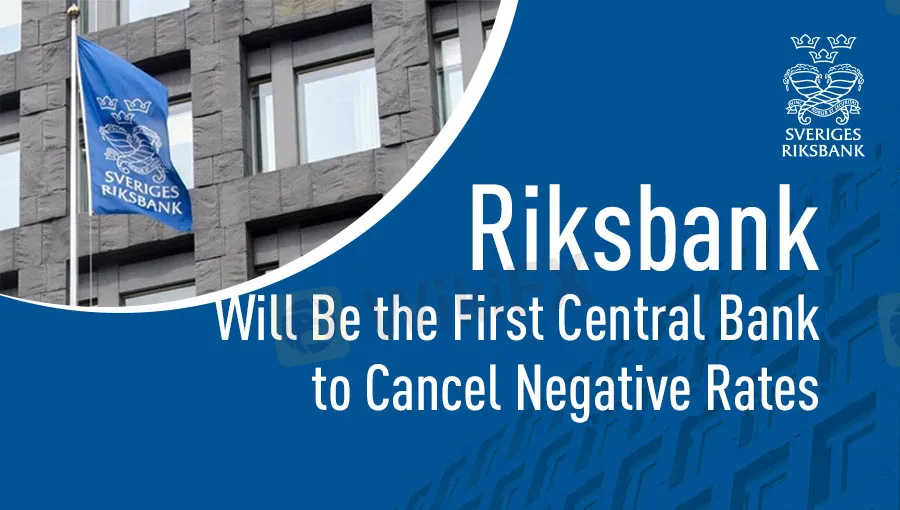简体中文
繁體中文
English
Pусский
日本語
ภาษาไทย
Tiếng Việt
Bahasa Indonesia
Español
हिन्दी
Filippiiniläinen
Français
Deutsch
Português
Türkçe
한국어
العربية
Riksbank Will be the First Central Bank to Cancel Negative Rates
Ikhtisar:Survey shows that the Swedish central bank may raise the negative interest rate to zero and become the only central bank to do so, though it’s not the first central bank to implement negative interest rates. This week's decision to raise interest rates may not be consistent with economic performance. Although the Swedish economy is not in a crisis, it is still slowing down.

Survey shows that the Swedish central bank may raise the negative interest rate to zero and become the only central bank to do so, though its not the first central bank to implement negative interest rates. This week's decision to raise interest rates may not be consistent with economic performance. Although the Swedish economy is not in a crisis, it is still slowing down.
Global economic growth has been sluggish throughout 2019, and most indicators point to a difficult fourth quarter. As inflation remains lower than the central bank's 2% target and the global outlook is also volatile, Riksbank is increasingly worried about the risks of downdraft that may arise from holding rates negative for too long. Housing price and borrowings have increased sharply, while investors are relying more on high-yielding assets, posing risks to the financial system.

Disclaimer:
Pandangan dalam artikel ini hanya mewakili pandangan pribadi penulis dan bukan merupakan saran investasi untuk platform ini. Platform ini tidak menjamin keakuratan, kelengkapan dan ketepatan waktu informasi artikel, juga tidak bertanggung jawab atas kerugian yang disebabkan oleh penggunaan atau kepercayaan informasi artikel.
Baca lebih banyak

Join and GET 2100 WikiBit for free on Christmas Day!
Countdown 24 hours!

Data Ekonomi Menjadi Aneh? Bagian II
Masalah serupa berlaku untuk "survei pendirian," yang B.L.S. gunakan untuk mentabulasi angka pertumbuhan pekerjaan. Agensi mensurvei sekitar 145.000 bisnis dan agensi pemerintah tentang berapa banyak karyawan yang mereka miliki dalam daftar gaji.

Data Ekonomi Menjadi Aneh? Bagian I
Amerika Serikat mengalami keruntuhan yang tak terduga dalam aktivitas ekonominya. Itu yang kita tahu. Tetapi lebih dari itu bahkan dalam resesi normal, alat-alat yang harus kita pahami apa yang terjadi pada perekonomian menjadi terdistorsi atau lebih sulit untuk ditafsirkan, karena berbagai alasan.

Corona Menyentuh Ekspor, Perdagangan Jepang Turun 99% Pada Maret
Surplus perdagangan Jepang turun 99 persen di bulan Maret dari tahun sebelumnya karena masalah virus corona memukul ekspor ke mitra dagang utamanya, data resmi menunjukkan Senin.
WikiFX Broker
Berita Terhangat
Seri Ulasan Broker WikiFX: GTCFX Anggota Terbaru The Financial Commission
Kaleidoskop 2024: Top 5 Broker Forex Pembawa Malapetaka Di Indonesia
Tantang Diri Anda ! Perjalanan Kemajuan Bertransformasi dari Pemula menjadi Ahli Forex
Apakah eToro Broker Aman Atau Berbahaya? Perkenalkan Serangkaian Alat Portofolio Baru
Nilai Tukar






